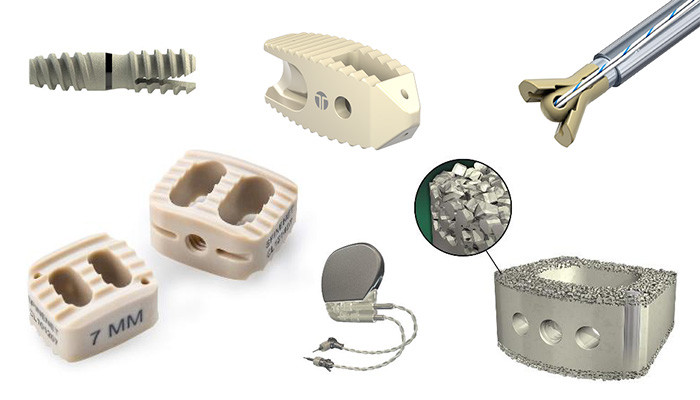
PEEK (Polyether Ether Ketone) is composed of alternating ether and ketone bonds, giving it exceptional thermal and chemical stability. Ether bonds contribute to flexibility and chemical resistance, while ketone bonds enhance rigidity and crystallinity.
This unique molecular structure enables PEEK to maintain superior performance even under extreme conditions such as high temperature, strong acids, and strong alkalis.
PEEK has a melting point of 343°C and can continuously operate at temperatures up to 250°C without losing its mechanical strength.
This allows PEEK surgical instruments to withstand repeated high-temperature sterilization, such as autoclave steam sterilization at 134°C.
With high stiffness, strength, and modulus, PEEK resists deformation and breakage even under heavy loads and cyclic stresses, making it ideal for components that require structural stability and durability.
PEEK is highly corrosion-resistant to most solvents and chemicals. Except for concentrated sulfuric acid, it withstands acids, bases, oxidizers, and common disinfectants used in medical cleaning - maintaining long-term performance stability.
PEEK is one of the most radiation-resistant polymers, able to withstand γ-rays and X-rays, making it irreplaceable for medical applications such as containers for radioactive materials and devices used in radiological environments.
PEEK exhibits excellent resistance to hot water and steam, performing reliably in high-humidity and high-temperature environments. It resists hydrolysis and can endure long-term exposure to steam at 200°C.
PEEK offers superior self-lubricating and wear-resistant properties, maintaining surface quality under frequent use.
This minimizes abrasion, scratches, and component failures, extending the service life of precision parts.
PEEK can be processed using traditional plastic methods like injection molding, extrusion, and thermoforming, as well as CNC machining.
Its versatility provides designers and manufacturers with maximum flexibility in product development.
Despite its strength and rigidity, PEEK is significantly lighter than metals such as steel or stainless steel, with a density of only 1.3 g/cm³ — an ideal material for reducing device weight and improving ergonomic performance.
Handles and Connectors: Used in scalpels, endoscope grips, and orthopedic drill handles.
Lightweight and sterilization-resistant, they reduce fatigue and maintain dimensional stability through frequent disinfection.
Precision Motion Parts: Gears and bearings in automated surgical systems utilize PEEK's low wear and friction, minimizing failure rates.
Pump Valves and Seals: Used in infusion pumps and dialysis machines.
PEEK seals last 10 times longer than rubber, resist acid/base corrosion, and prevent fluid contamination.
Tube Connectors: Ensure leak-free channels and are resistant to γ-ray sterilization, improving safety and reliability.
Centrifuge Rotors and Brackets: PEEK's lightweight yet strong structure enables high-speed rotation and excellent fatigue resistance, improving equipment stability and extending service life.
PEEK has become one of the most important high-performance polymers in modern medical engineering.
Its combination of strength, chemical resistance, sterilization endurance, and biocompatibility positions it as the ideal replacement for metals and lower-grade plastics in surgical, analytical, and laboratory applications.